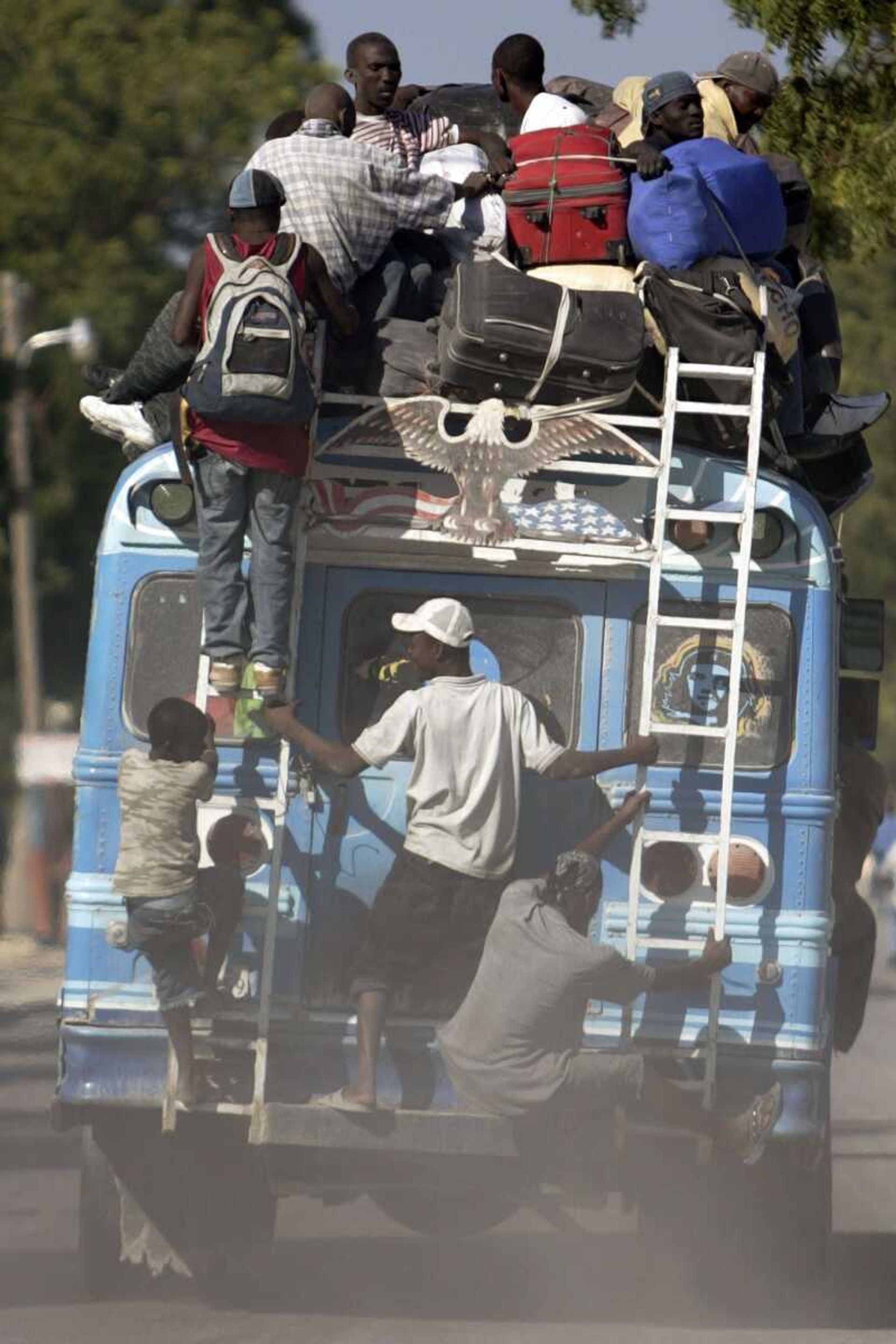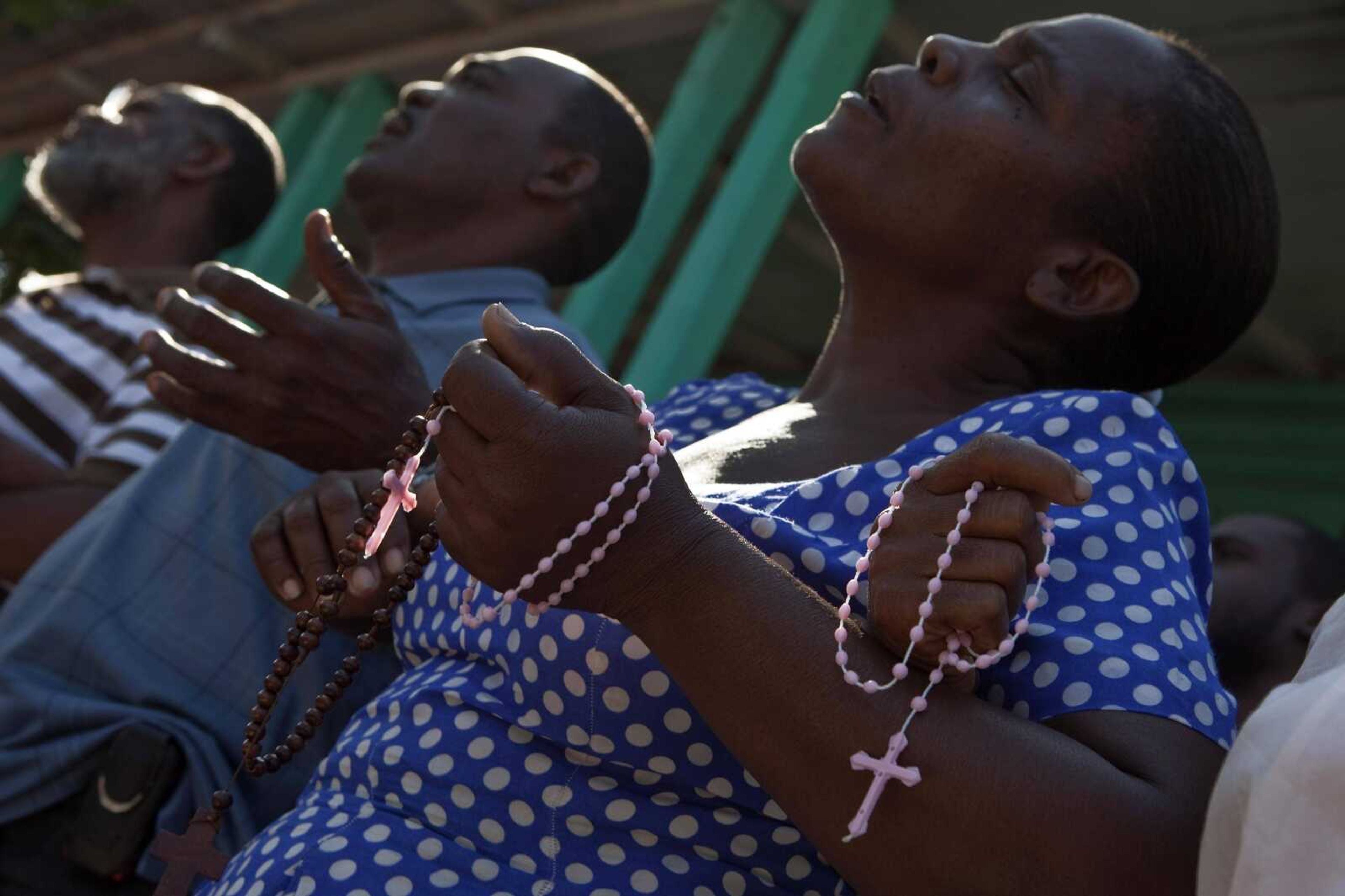Gov't: 150,000 Haiti earthquake victims buried in mass graves
PORT-AU-PRINCE, Haiti -- The truckers filling Haiti's mass graves with bodies reported ever higher numbers: More than 150,000 quake victims have been buried by the government, an official said Sunday. That doesn't count those still under the debris, carried off by relatives or killed in the outlying quake zone...
PORT-AU-PRINCE, Haiti -- The truckers filling Haiti's mass graves with bodies reported ever higher numbers: More than 150,000 quake victims have been buried by the government, an official said Sunday.
That doesn't count those still under the debris, carried off by relatives or killed in the outlying quake zone.
"Nobody knows how many bodies are buried in the rubble -- 200,000? 300,000? Who knows the overall death toll?" said the official, Communications Minister Marie-Laurence Jocelyn Lassegue.
Dealing with the living, meanwhile, a global army of aid workers was getting more food into people's hands, but acknowledged falling short.
"We wish we could do more, quicker," said U.N. World Food Program chief Josette Sheeran, visiting Port-au-Prince.

In the Cite Soleil slum, U.S. soldiers and Brazilian U.N. peacekeeping troops distributed food. Lunie Marcelin, 57, said the handouts will help her and six grown children "but it is not enough. We need more."
The Haitian government was urging many of the estimated 600,000 homeless huddled in open areas of Port-au-Prince, a city of 2 million, to look for better shelter with relatives or others in the countryside. Some 200,000 were believed already to have done so, most taking advantage of free government transportation, and others formed a steady stream out of the city on Sunday.
International experts searched for sites to erect tent cities for quake refugees on the capital's outskirts, but such short-term solutions were still weeks away, said the International Organization for Migration, an intergovernmental agency.
"We also need tents. There is a shortage of tents," said Vincent Houver, the Geneva-based agency's chief of mission in Haiti. Their Port-au-Prince warehouse has 10,000 family-size tents, but some 100,000 are needed, he said. The organization has appealed for $30 million for that and other needs, and has received two-thirds of that so far.
In the aftermath of the 7.0-magnitude earthquake, the casualty estimates have been necessarily tentative. Lassegue told The Associated Press the government's figure of 150,000 buried, from the capital area alone, was reported by CNE, a state company collecting corpses and burying them north of Port-au-Prince.
That number would tend to confirm an overall estimate of 200,000 dead reported last week by the European Commission, citing Haitian government sources. The United Nations, meanwhile, was sticking Sunday with an earlier confirmed death toll of at least 111,481, based on recovered bodies.
The final casualty estimates, which the European Commission said also include some 250,000 injured, will clearly place the Jan. 12 earthquake among the deadliest natural catastrophes of recent times. That list includes the 1970 Bangladesh cyclone, believed to have killed 300,000 people; the 1974 northeast China earthquake, which killed at least 242,000 people; and the 2004 Indian Ocean tsunami, with 226,000 dead.
One who wouldn't die in Port-au-Prince was Wismond Exantus, who was extricated from the rubble Saturday. He spoke with the AP from his cot in a French field hospital on Sunday, saying the first thing he wanted to do was find a church to give thanks.
He spent the 11 days buried in the ruins of a hotel grocery store praying, reciting psalms and sleeping, he said. "I wasn't afraid because I knew they were searching and would come for me," he said.
With further such rescues highly unlikely so long after the quake, Haiti's government has declared an end to search operations for the living, shifting the focus more than ever to caring for the thousands surviving in squalid, makeshift camps.
The World Food Program had delivered about 2 million meals to the needy on Friday, up from 1.2 million on Thursday, Sheeran said. But she acknowledged that much more was needed.
"This is the most complex operation WFP has ever launched," she said.
The scene Sunday at Cite Soleil, the capital's largest and most notorious slum, showed the need.
Thousands of men, women and children lined up and waited peacefully for their turn as the American and Brazilian troops handed out aid -- the Americans gave ready-to-eat meals, high-energy biscuits and bottled water, the Brazilians passed out small bags holding uncooked beans, salt, sugar and sardines, as well as water.
The need for medical care, especially surgery, postoperative care and drugs, still overwhelmed the help available, aid agencies reported. In the isolated southern port city of Jacmel alone, about 100 patients needed surgery as of Friday, the U.N. reported. Medical personnel were there, but not the necessary surgery supplies.
In Port-au-Prince, meanwhile, the aid group Doctors Without Borders said its inflatable hospital -- six large inflatable tents flown in from France -- was preparing for its first operations.
The world's nations have pledged some $1 billion in emergency aid to Haiti. Organizers of Friday night's "Hope for Haiti Now" international telethon reported the event raised $57 million, with more pledges from ordinary people still coming in.
------
Associated Press writers contributing to this story included Michelle Faul, Ben Fox and Paul Haven in Port-au-Prince, and Charles J. Hanley in Mexico City.
Connect with the Southeast Missourian Newsroom:
For corrections to this story or other insights for the editor, click here. To submit a letter to the editor, click here. To learn about the Southeast Missourian’s AI Policy, click here.










